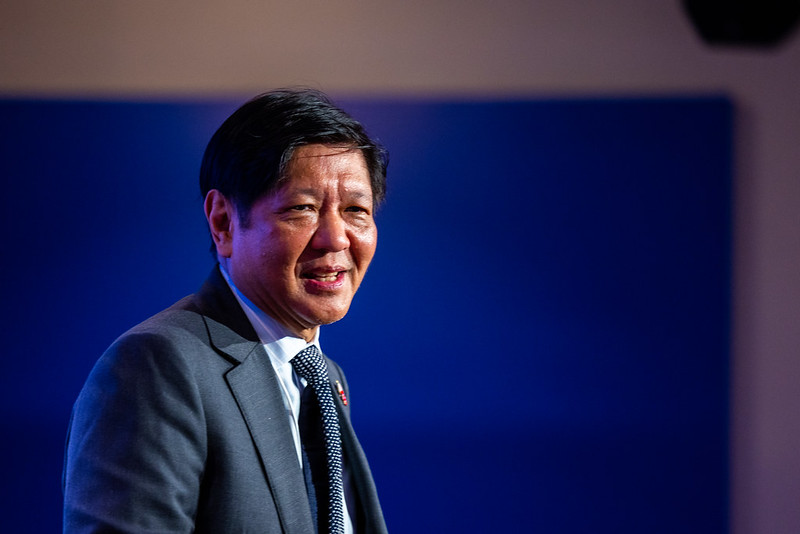Marcos reshuffles government in wake of elections
The Filipino president has announced a "cabinet reshuffle" to "adjust our actions to the expectations of the people." The failure to elect five out of eleven candidates for Senate seats, crucial in the battle against the "Duterte clan," weighs heavily. The goal is to revitalise the administration’s initiatives to overcome poverty, inadequate public services, and limited opportunities for young people.
Manila (AsiaNews) – Following the less favourable-than-expected results of the parliamentary elections, particularly significant as they came at the halfway point of his six-year term, Filipino President Ferdinand Marcos Jr has called for a reshuffling of his government. Marcos indicated that this reshuffle, along with other interventions, will respond to the signals from the electorate. In essence, the aim is to give a boost to his administration’s initiatives to address poverty, poor public services, and the limited opportunities available to young people.
While the election results confirmed the control of Marcos' Federal Party of the Philippines in the House of Representatives, the most significant factor was the failure to elect five of the eleven candidates supported by Marcos for the Senate. This, despite maintaining a majority favourable to his political camp among the 24 senators (half of whom were renewed), fell short of expectations. This outcome is set to further strengthen the alliance led by the Duterte family, rivals of the Marcos family in the ongoing "dynastic" feud between the current president, his predecessor Rodrigo Duterte, and his daughter Sara Duterte, who is currently facing impeachment as vice president.
The decisive role of the senators in determining the institutional fate of Sara Duterte – whose verdict is expected in June – has made the Senate competition the most closely followed and discussed, nearly overshadowing the elections for the House of Representatives and the approximately 18,000 local and municipal positions. “It is time to adjust the government’s actions to the expectations of the people,” Marcos said today. “The people have spoken and expect results, not political games or excuses. We must listen to them and we will act.”
After what the president himself described as a “wake-up call,” it will be necessary to evaluate the performance of each ministry and intervene where appropriate. This move is seen as a departure from his conciliatory approach, which had heavily relied on personalities inside and outside the government to approve the president’s programme.
The proposals from his rivals – advanced with a more aggressive and populist style – despite receiving less approval than expected in the election, have shown they are still resonating with the electorate. This is true both for opposition groups formed during the last election (such as the one that led to the election of Leila de Lima to the House of Representatives), and for the Dutertes, who have built their political fortunes and those of their parties on easily digestible proposals, personal relationships, and spectacular, contradictory initiatives (including the "war on drugs" that cost thousands of lives between 2016 and 2022, with substantial immunity granted to those responsible for abuses and killings).
07/02/2019 17:28







.png)










